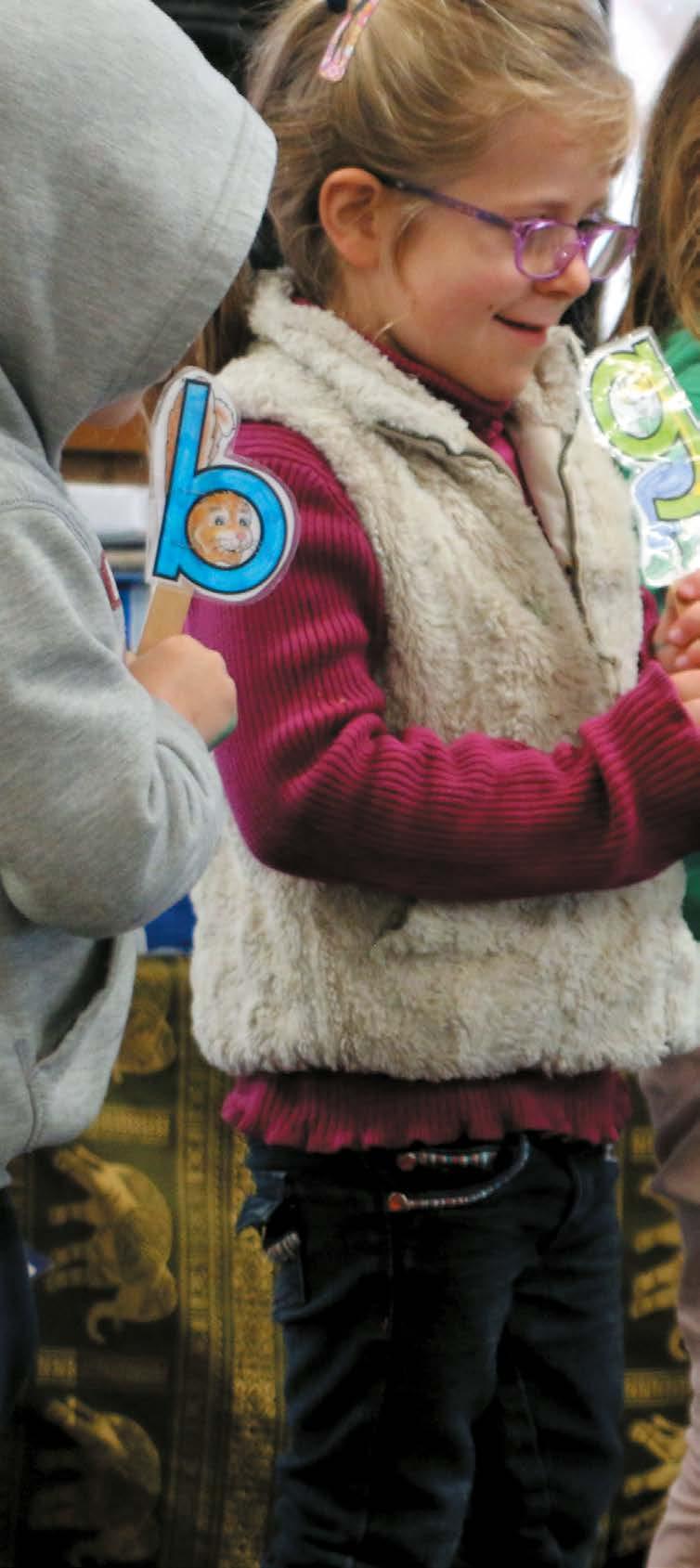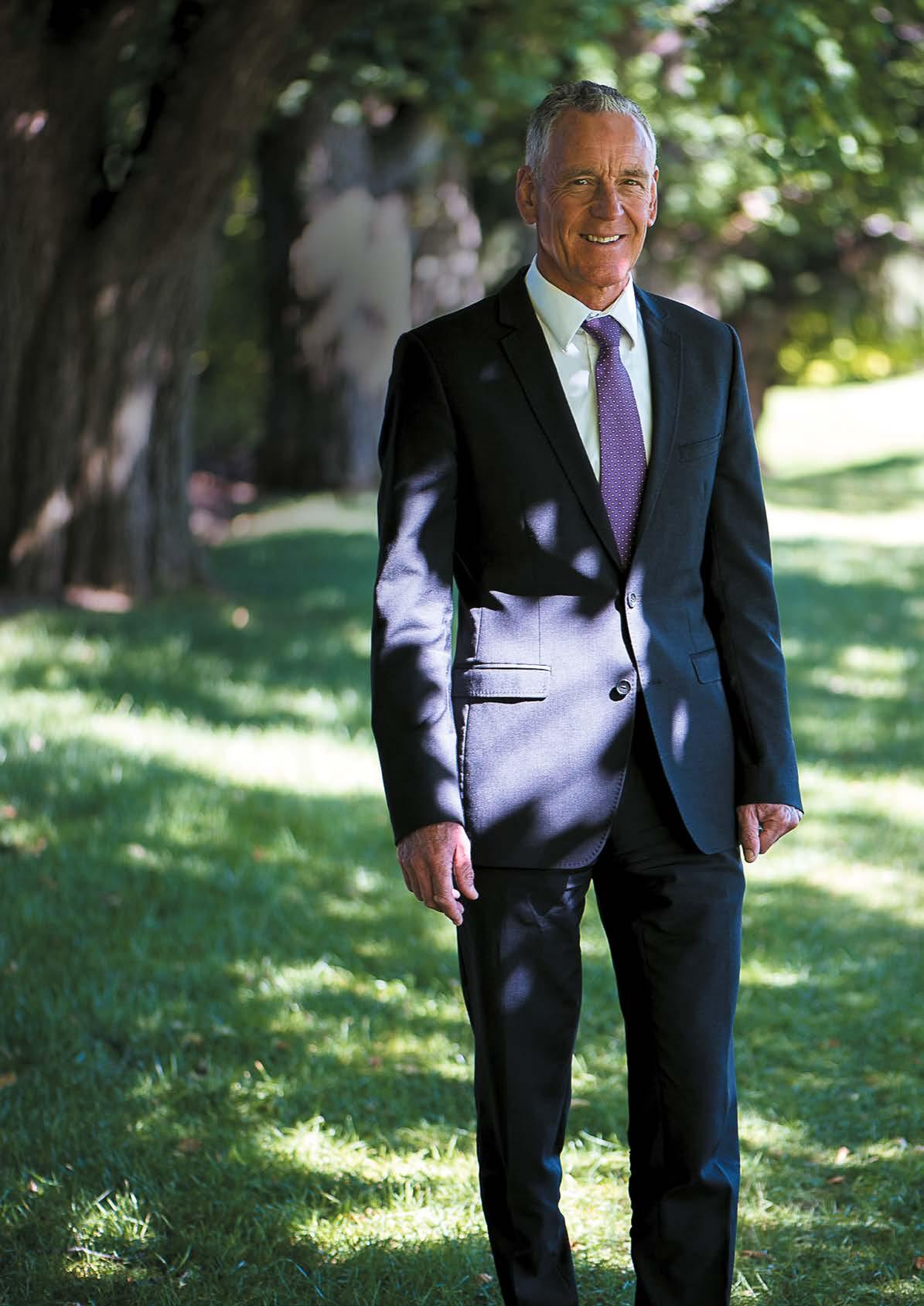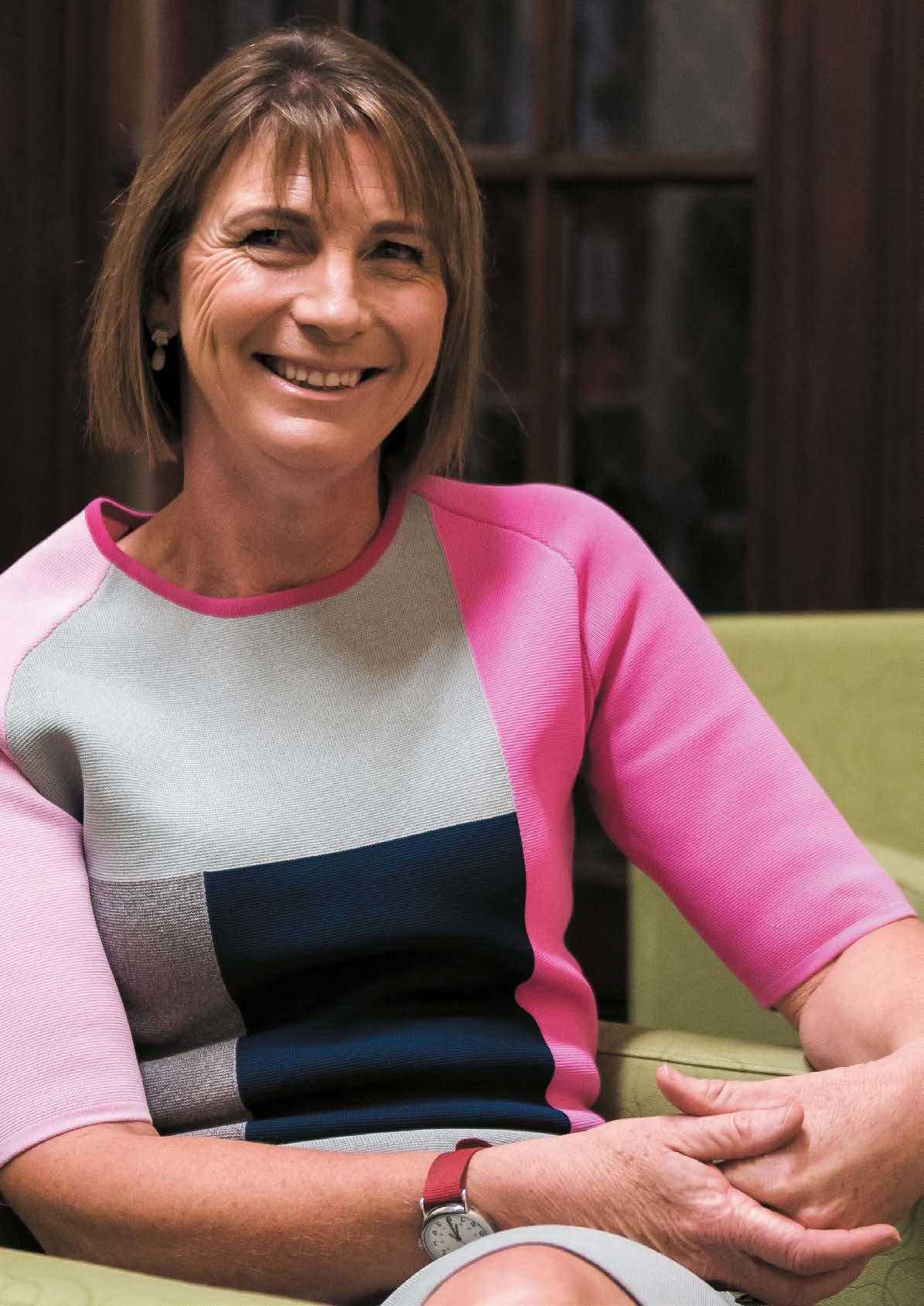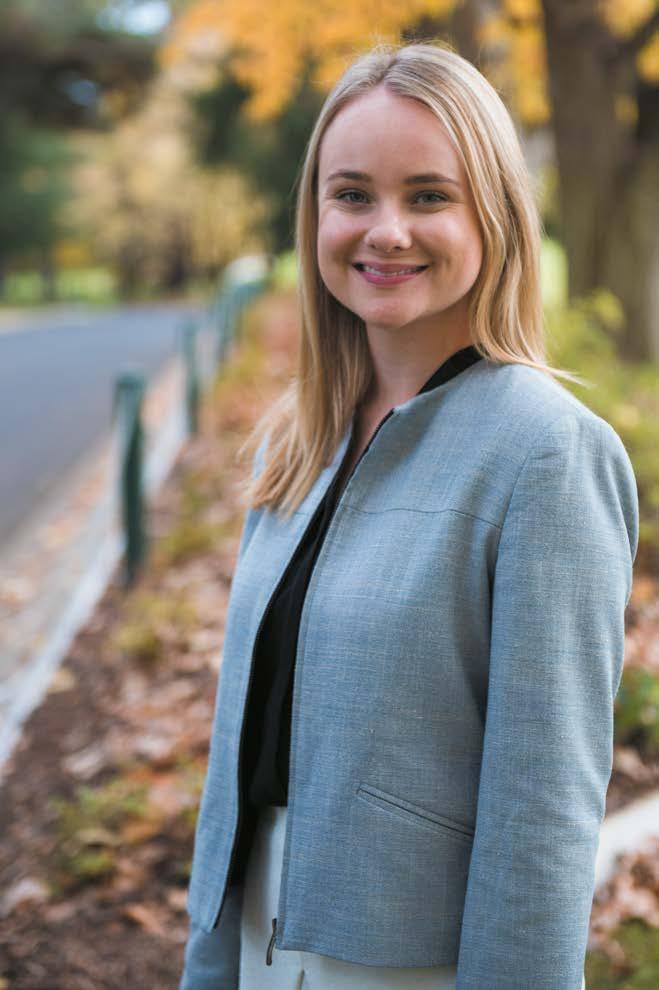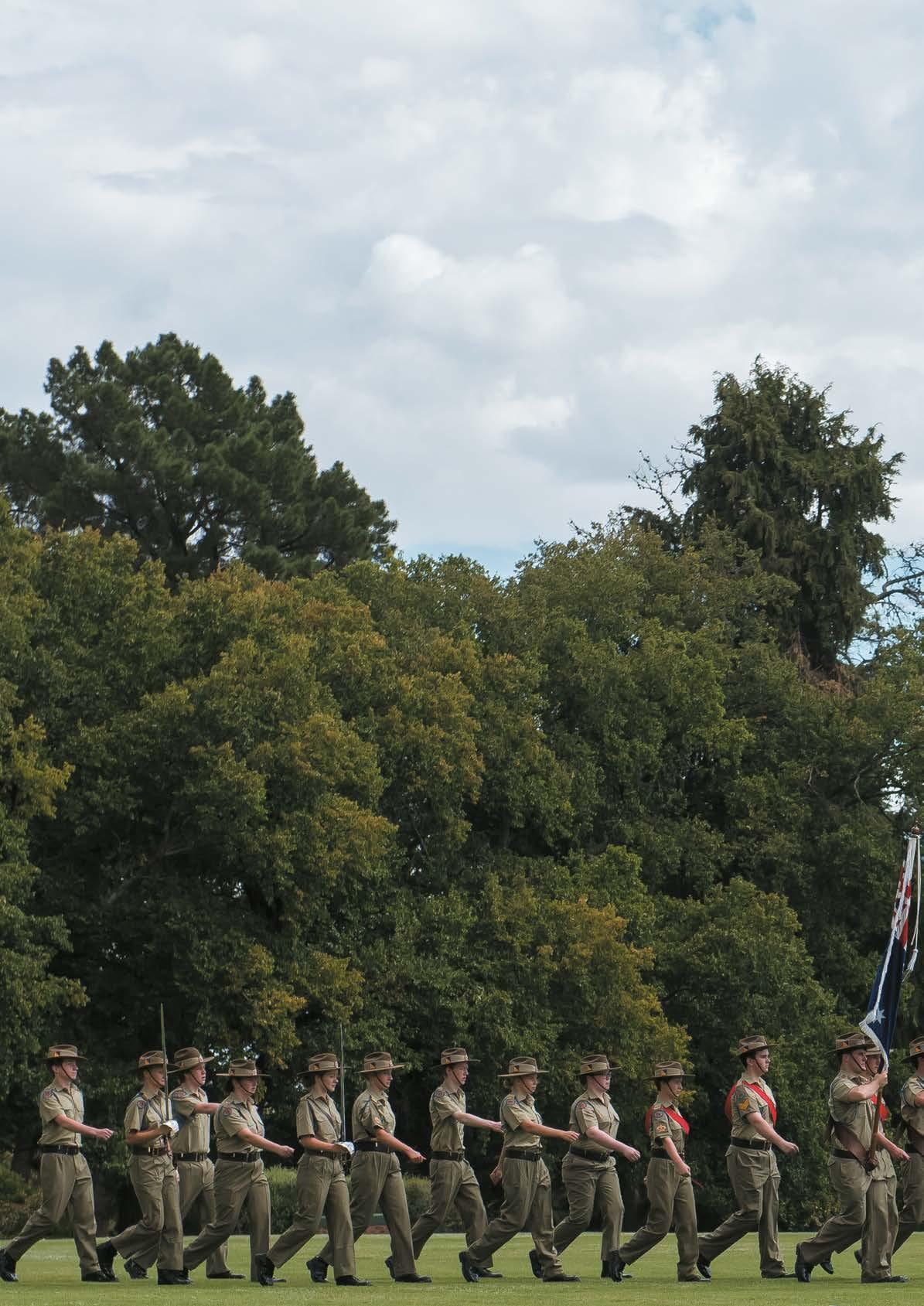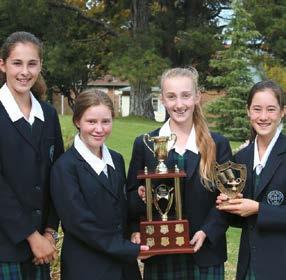
12 minute read
Programs and Innovation
SCIENTIA PROGRAM ALLOWS STUDENTS TO REACH THEIR FULL POTENTIAL
Catering for the gifted and talented students in the Preparatory School, the program uses withdrawal groups to supplement the work being completed in the regular classroom. Nominated by their teachers, children are selected on their academic record, work skills, ability to work independently and as part of a group, and having an overall willingness to participate in the program.
Scientia Co-ordinator, Mark Pritchard, says that “the workshop activities provide an opportunity for like-minded students to come together in a secure and supportive environment where they can develop their gifts and turn them into talents.” Mentored by Preparatory staff, students are able to work on long-term projects. In the past and again in 2016, KWS has been fortunate to have members of the Secondary Mathematics and Science faculties provide their expertise to mentor groups.
Reinforcing the KWS strategic plan, Scientia develops motivated and engaged learners by ensuring that the learning is student centred. The students regularly choose an area to work on that they are passionate about.
Mark says “Scientia provides experiences which require perseverance and long-term commitment. It creates a culture that encourages and supports personal achievement by having high expectations of work and end product. The program also builds creativity and collaboration across Key Learning Areas as the children use a multitude of skills to complete their work.”
Rotating on a two year cycle, the courses offered are closely aligned with the Key Learning Areas. The exception is Mathematics which runs annually. In 2016 the Mathematics program will run for the majority of the year rather than just one term as in previous years. In even years, the programs offered are Night of the Notables, and Art. Night of the Notables allows the children to carry out in-depth research of an eminent person. On the presentation day they dress as that person and answer questions from the school community as if they were in character. In Art the students attend workshops aimed at developing their artistic skills. They work on a major piece which is displayed for the school community on KWS Prep Open Day. In odd years, Science and Creative Writing are offered. The students doing Science carry out a long-term scientific investigation and are mentored along the way to ensure proper scientific procedures are adhered to. Their research is then presented on a presentation afternoon. Creative Writing allows the children to select a style of writing they enjoy and then create a major piece of work. Again, they attend workshops and develop their writing skills while preparing their work.
“The standard of work is always very high and demonstrates what children are capable of when given time and support to pursue work in an area of interest to them”, said Mark.
Now in its seventh year, the Scientia Program assists students from Kindergarten to Year 6 to reach their full potential.
KIDSMATTER: EVERY FACE HAS ITS PLACE
At KWS, Student Health and Wellbeing is a priority, with an emphasis on educating and developing the whole student from an emotional, social, spiritual, academic and physical perspective.
— Students engaged in integrated learning Photo contributed (Melise Coleman, Orange City Life)
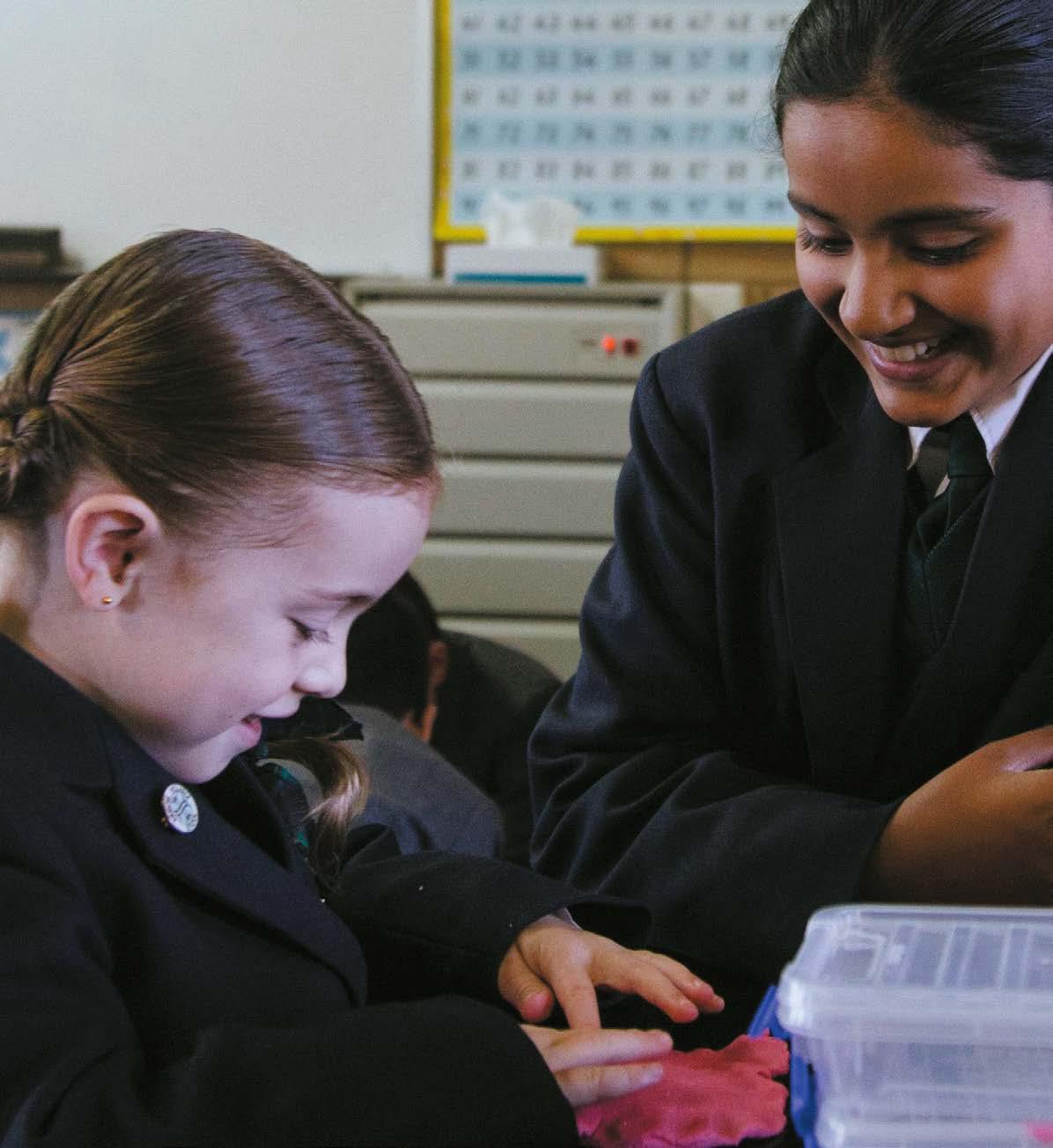
Wellbeing initiatives recognise the importance of building positive communities and fostering relationships that thrive on a culture of curiosity, creativity and critical thinking, motivating students to be engaged and committed to their personal learning and development.
The research is clear: children with good mental health are better able to meet life’s challenges as they transition to adulthood. In addition, they are more engaged learners, perform better in class and report better relationships with the people around them.
Every school day presents challenges for young children. With academic challenges, understanding new concepts and sporting events, managing difficult social situations, peer pressure, failures and setbacks, children have plenty to contend with. The overwhelming effects of multiple stressors including family breakdown, racism, bereavement, bullying or the mental illness of a parent can place a child at a greater risk of developing emotional or behavioural problems such as anxiety, depression and self-harm that can continue into adulthood. Estimates suggest mental health difficulties affect one in seven
Australian primary school children.
Fear of prejudice and judgement prove to be a barrier, with one in four children with mental health difficulties actually receiving help. While it is not always easy to detect, the best prevention is early intervention, and this begins with putting an end to the silence surrounding mental health and replacing it with optimism, support and understanding.
Kinross Wolaroi Preparatory School is dedicated to helping every child feel comfortable with their everyday mental wellbeing. This year, KidsMatter
Primary is being implemented. With funding assistance from the Australian
Government and beyondblue,
KidsMatter Primary is a mental health and wellbeing framework that helps schools focus on the development of all students in partnership with families. This is achieved by creating positive school communities, teaching children good social and emotional development skills, and recognising the need for help for children with mental health issues.
To kick things off, parents at KWS were given the opportunity to complete a short survey which provided vital information to help the school support children in the years ahead. Based on the results, staff at KWS have begun to plan and assess practices and policies around building resilience in children, cybersafety, wellbeing of children, and dealing with bullying.
Committed to providing students with the opportunity to care for others, there are a variety of programs in the Preparatory School to support students, allowing them to have a voice and recognise cultural diversity. These range from the School Representative Council (SRC), the Peer Support groups that cut across year groups, the Buddy System for new students, to the celebration of Harmony Day. Staff are committed to assisting children learn how and when to ask for help as well as communicating information to parents that assists in the wellbeing of children outside the classroom. An information session was held for parents addressing the issue of cyber-safety and the insidious way people can be led into feeling “safe” online in the presence of strangers. In addition, the introduction of the Buddy Bench, an SRC initiative, values the need for building positive relationships and making the playground a happier place. The Buddy Bench creates a space where children can seek support from the SRC members if they have no one to play with, need help finding a friend or just want to chat to someone. In support of KidsMatter, “every face has its place.”
The KWS strategic vision has provided direction and responsibility to promote innovative and engaged learning with a focus on developing individual and collective strengths.
FOSTERING A COMMITMENT TO PROFESSIONAL LEARNING OPPORTUNITIES
All teachers are leaders in their classroom. “Previous tertiary study, various leadership positions and classroom experience have taught me that leadership context matters” said KWS teacher and Director of Staff Development, Mrs Susan Cameron. “At KWS, the additional areas of co-curricular and boarding contribute to the overall complexity and cultural aspects of leadership. Staff need to be well equipped with styles and strategies that they can draw upon, depending on the context, to support the mission of KWS now and into the future.”
In 2015, KWS secured 15 scholarships valued at $60,000 for the National Excellence in School Leadership Initiative (NESLI) Leading Teachers Colloquium program. Partnering with the Australian School of Applied Management, Melbourne University, this course provides a pathway for a Masters Degree from a number of reputable Universities. Late in 2015, KWS secured an additional 16 scholarships valued at $64,000. Committed to investing in professional learning opportunities for staff, the success of scholarship funding continues in 2016 with a further 20 scholarships being awarded.
The program will be delivered to 51 staff members, including Senior Management, Heads of Academic areas, Heads of Houses (associated with student wellbeing) and classroom teachers, with participants from both the Preparatory and Secondary schools. Undertaken over a three to four year period, the program will assist in creating a rich, challenging and innovative learning environment for KWS students while providing the platform to strengthen the current leadership skills of staff. The blended learning format of the course, with online and face-to-face components, has led to the growth of strong professional relationships with a shared commitment to the School’s values and vision.
The leadership program connection has been evident in improved teacherstudent relationship building. Susan says, “Teachers completing the program have noted the benefits of their enhanced toolkit of strategies and reflective pedagogical knowledge when working with students and parents.” Their confidence and ability to manage personality types, have difficult conversations with peers and others stakeholders and seek feedback from their students has been enhanced and affirmed through the completion of the program.
The teacher–teacher relationships that continually strengthen the School’s vision and support school cohesiveness have also been enhanced. The inclusion of a Senior Manager in each cohort has clearly emphasised the “whole school” support for the program and the concept of leaders learning together and from each other. Through the peer coaching aspect of the program it is very evident that a number of deep and lasting professional friendships have been formed or strengthened. In addition, staff have a better understanding of the various challenges associated with different school leadership positions.
With a focus on leadership that supports student learning, the course has fostered professional learning conversations and has provided a research-based leadership direction for the KWS community to embrace, nurture and develop. “It has provided a further pathway for professional learning and has allowed me to continue to support the staff and my belief in the importance of being a lifelong learner”, said Susan.
— Susan Cameron with staff members of the NESLI program
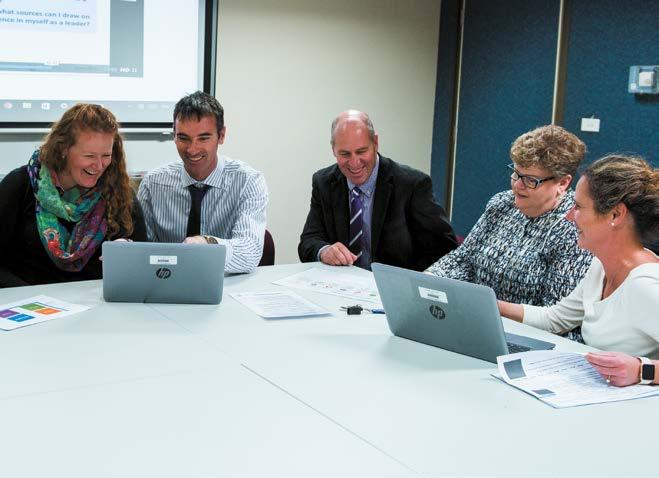
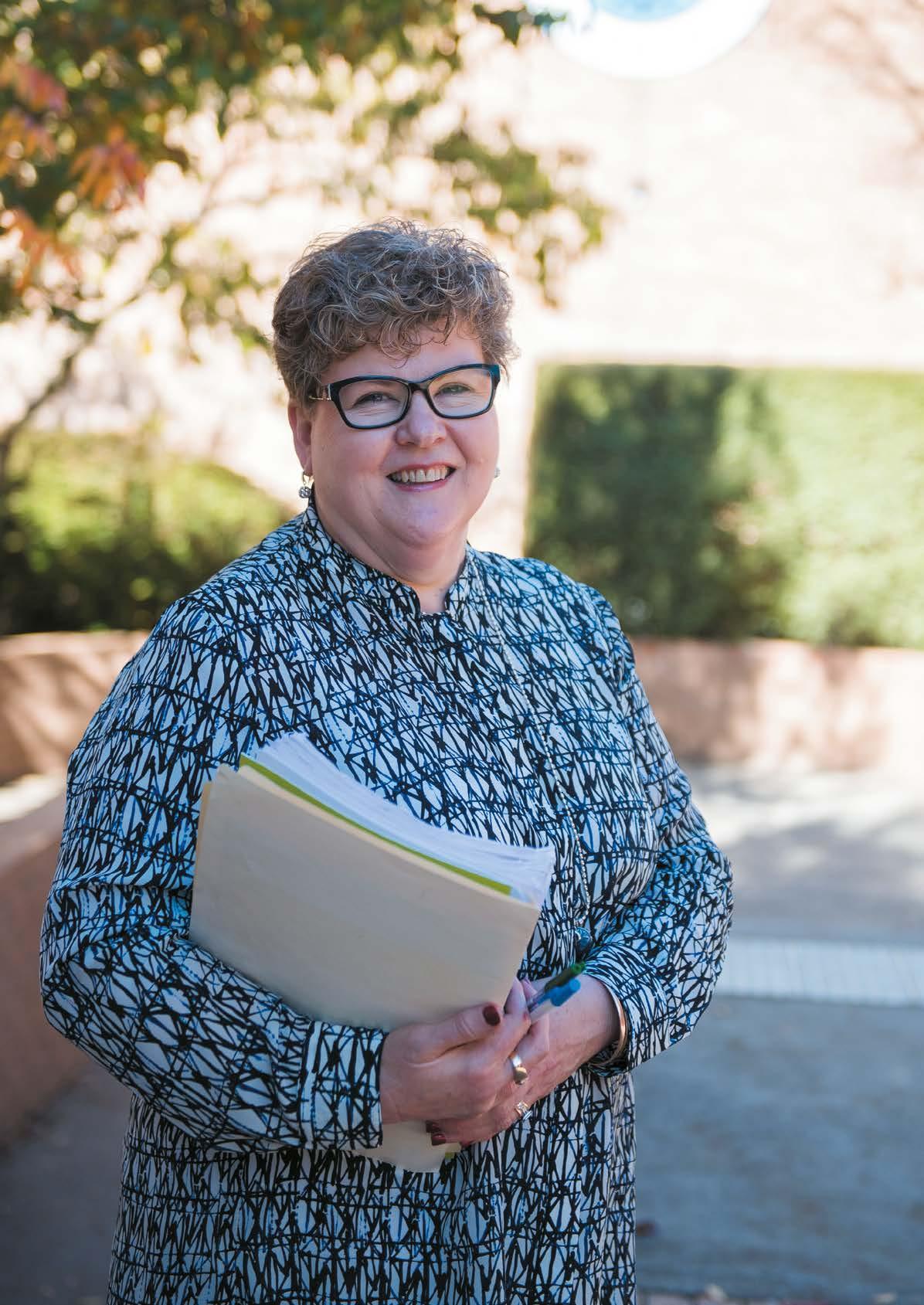
TURNING TRADITIONAL EDUCATION ON ITS HEAD
In 2014, Pete Whiting, Science teacher at KWS, embarked upon an exciting journey which challenges the traditional teaching model in an attempt to build a community of involved and engaged learners, ensuring commitment to individual achievement.
— Pete Whiting with Year 12 Chemistry students
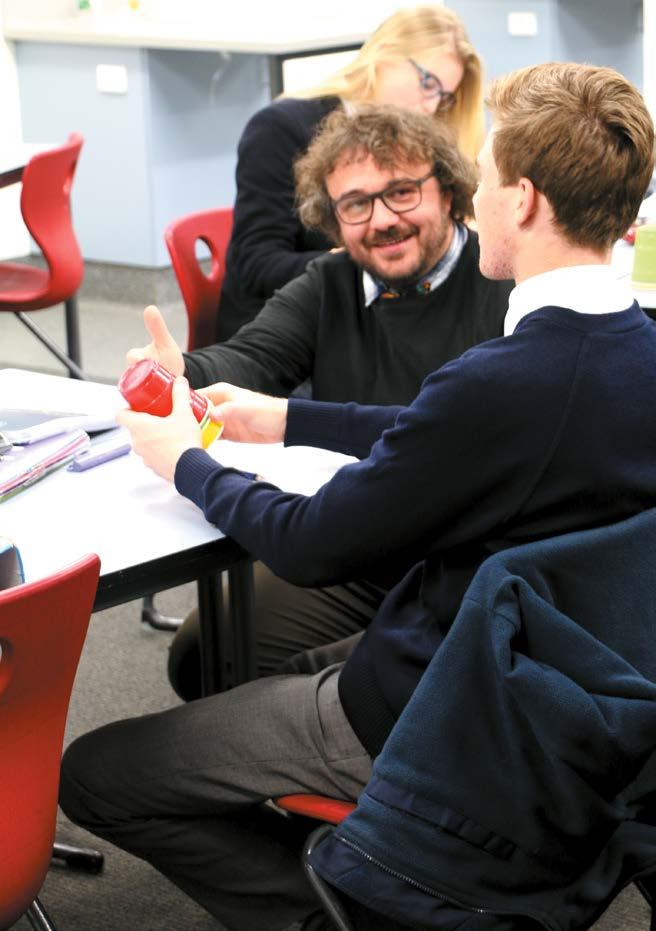
He began his Experienced Teacher Accreditation through the Association of Independent Schools NSW (AIS), choosing the pathway of Action Research. Pete’s research focused on the “Flipped Classroom” educational paradigm (based on the work of John Bergmann and Aaron Sams). “The concept strives to take the focus away from the direct lecture by relying on engagement with online learning content at home so as to create a more active classroom that encourages the development of relationships between teachers and students”, said Pete. Essentially, it inverts traditional teaching methods by delivering instruction online through the use of videos, podcast and interactive forums outside of class and moving “homework” into the classroom allowing for more critical thinking, analysis and discussion, which are the areas where students need the most help.
Pete collaborated with KWS Science Teacher, John Catterson, to lead a cross faculty Flipped Classroom Research Project team of 16 KWS staff members to investigate student engagement with the Flipped Classroom methodology, how additional classroom time is utilised, and the approaches to time management in relation to video production. One of the obvious benefits is that teachers are able to revisit concepts students do not understand. After students watch the lessons they can write down any questions they have and the teachers can then review those questions with each student individually. A survey was conducted amongst a sample of 69 KWS Science students in which 69.5% of respondents indicated having positive experiences with this model of teaching.
From here, a set of online videos for alternating units was developed; some videos were created separately by Pete and John, while others were sourced externally. Academic assessment was conducted by using topic tests with student engagement evaluated through assessing bookwork and frequency of homework interaction. While research indicated that there was a preference amongst students for their instructional material to be delivered by their specific teachers, there was no difference at all in academic outcomes (even though students perceived there was). According to Pete, this is possibly because students who failed to complete the homework were required to complete their homework in class by watching the video content before engaging with their peers in a more active lesson.
Today, teachers are busier than ever and the trend of increased expectations does not appear to be slowing down. The video production of a Flipped Classroom can be quite time consuming. However, to overcome this, Pete suggests that “given the actual academic difference involved, it might be a more effective use of time to share the production of flipped materials amongst peers in a department”.
Since 2015, both Pete and John have been teaching under the flipped classroom model. Their YouTube channels, “Mr Catterson”, “Mr P Whiting” have reached 100,000 views with more than 400 videos. Together they curate three class websites including www.catfisheducation.com. They will continue to co-ordinate the Flipped Classroom Action Research Group and lead a team in measuring the correlation between engagement and academic outcomes in flipped classrooms.
The model is only one of a repertoire of tools available to teachers. There is greater opportunity in the future for the use of the flipped classroom in improving innovative teaching practices in a number of year levels and subjects at KWS.
Pete’s research was presented at the AIS Educational Symposium in 2015 and was published in Science Education News Vol 64 Issue 2 Sept 2015.
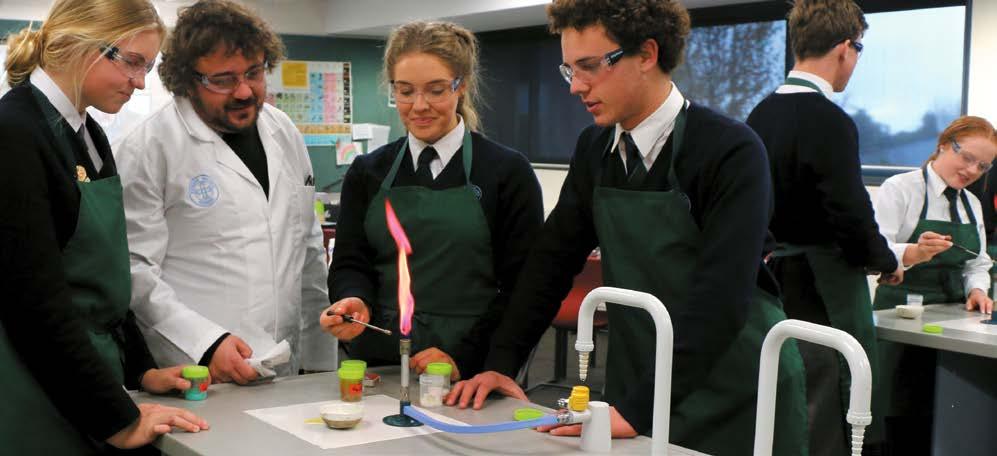
L FOR LETTERLAND
Preparing children for a smooth progression into Kindergarten, the Letterland pre-reading program at KWS takes children to an imaginary world where letters come to life.
Beginning at the start of Term 2, children have been progressing through letters of the alphabet as they are introduced to a new letter and character each week, such as Fire Fighter Fred. In addition, a song is learnt that allows children to develop their visual recognition skill and emphasise the sound it makes in words. Games are also played including “Find the Letter” and “Memory”. “The children really enjoy this program and become very excited about what next week’s character will be”, said Pre-Prep teacher Belinda Ferguson.
The multi-sensory and innovative system is just one tool available to assist in teaching children how to read, write and spell. By using pictogram characters its success truly lies in its ability to make learning fun.
